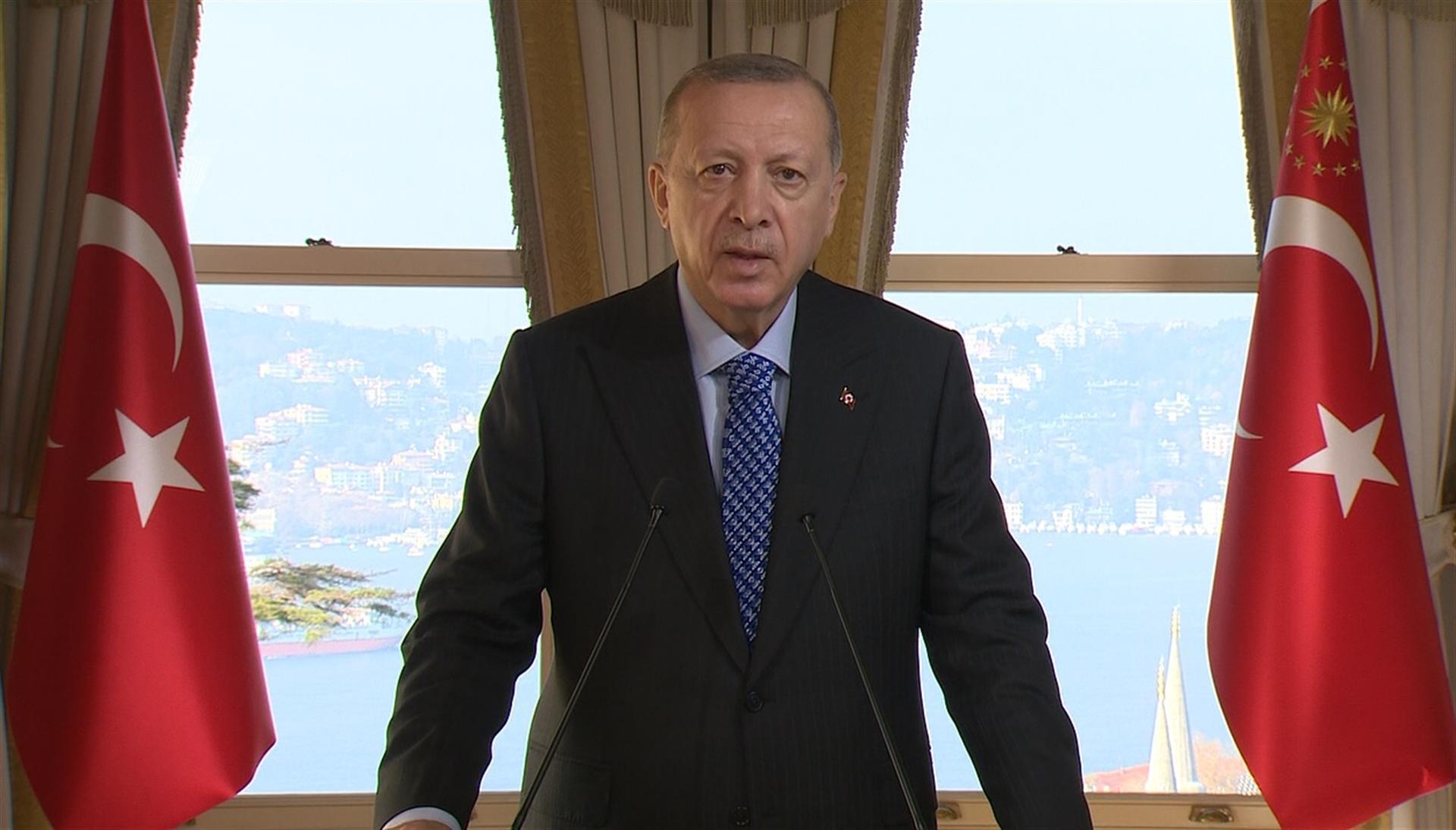
President Recep Tayyip Erdoğan has called on the European Union to “give a chance to diplomacy” on issues relating to the eastern Mediterranean, days ahead of a summit of the block that could impose sanctions on Turkey.
“Diplomacy should be given a chance if it is desired to progress towards a permanent solution in the Mediterranean,” Erdoğan said in a video message addressing a workshop on the eastern Mediterranean at Akdeniz University on Dec. 7.
“That is so because diplomacy and negotiation is the shortest and safest path that would bring us together around a common denominator. Turkey has maintained its equanimity since 2003 despite the spoiled acts of Greece and the Greek Cypriot administration. We preserve the same conciliatory stance of ours today as well,” Erdoğan said.
The president called on the EU to get rid of its “strategic blindness’’ and not be used as a tool of Greece and Greek Cyprus.
Turkey has never opted for tension in the eastern Mediterranean but to maintain peace, cooperation, fairness and the establishment of justice, he said, adding that the way to achieve this was through negotiations based on mutual respect.
“We believe we can solve the problems of the eastern Mediterranean by not excluding each other but by bringing all the actors together around the same table,” he stated.
Turkey would “not accept plans and maps that aim to confine us to the shores of Antalya,” he said, referring to maritime boundaries that Turkey says other countries are seeking to impose on it.
He referred to various scientific researches as well saying that there were between 3.5 trillion and 10 trillion cubic meters of extractable natural gas in the region and the estimations show that the region had around 1.5-3.5 billion barrels of oil reserves.
Turkey, the country with the longest coastline along the Mediterranean, cannot be a mere onlooker to the developments taking place here, the president said, noting that in this regard, Ankara closely follows the process to safeguard its interests and protect the rights of the Turkish Cypriots.
“We have already told our counterparts that we will not give in to threats or blackmails and will not allow expansionism. We do not seek to usurp anyone’s rights. We just take a firm stance against the pirate mentality seeking to steal away our rights,” he stated.
Meanwhile, Foreign Minister Mevlüt Çavuşoğlu called on the EU to decide on ties with Turkey.
“The EU needs to decide on relations with Turkey. Either it will contribute to the solution of problems as an honest mediator where we will continue our cooperation in many other areas such as anti-terrorism, immigration, customs union, visa liberalization or it will take unfair decisions with the influence of two spoiled members, which France also supports, where the tension will continue,” the minister said, addressing to the same conference.
If the EU acts in this direction for imposing sanctions, it will not contribute to the solution of the problems, he added. “It will not make any contribution to the solution of the Cyprus problem or the eastern Mediterranean issue, on the contrary, things will go awry.
EU leaders will meet on Dec. 10 in Brussels and will address Turkish missions to explore gas reserves in waters claimed by the two EU members, Greece and Greek Cyprus.
The tensions between NATO allies, Turkey and Greece, escalated in the summer with a military build-up after Turkey sent its research vessel Oruç Reis escorted by navy frigates into disputed waters. The move prompted Greece to also send its warships, and both countries conducted military exercises to assert their claims.
In a summit that took place in October, European leaders warned Turkey to withdraw its energy research ships or face punitive measures instead.
Late last month, the Turkish seismic survey vessel Oruç Reis returned to port, as it had done before October’s EU meeting.